Save vs. Nostalgia: Dungeons & Dragons & Us
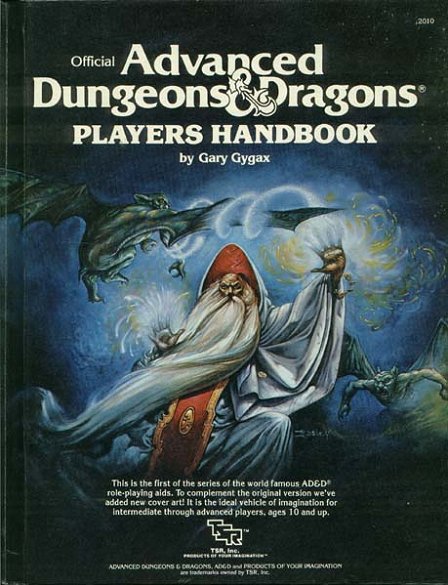
Being an old D&D hack who whetted his blade in 2nd edition (I’m the same age as the game, actually), I am naturally nostalgic about Dungeons and Dragons. Helplessly nostalgic, as it happens. Recently, I was rating RPGs for fun (F.A.T.A.L. * — Paranoia ****) when my wife asked me where I would rank D&D. I was stunned. I couldn’t do it; I couldn’t see the game objectively. How do you judge the system merits of weekend-long sessions with your best friends? How do you assess the playability of midnight debates about Alignments? No, even though I no longer played the game, I had still failed my saving throw and was Charmed by D&D.
For me, like many gamers, Dungeons & Dragons was my first game and, for many years, my only game. In the bad old Good Old Days, games and players were hard to come by, and Dungeon Masters were heralded and hounded – gods among men, or rather gods among spotty teenagers. We played what we had with whom we had and it was more than enough – it was fantastic!
Eventually, of course, there were other games. In college I was introduced to West End’s wonderful Star Wars RPG, and later I fell under the spell of Vampire: the Masquerade and the rest of the World of Darkness. There was BESM, and Ghostbusters, and All Flesh Must be Eaten, and Call of Cthulhu, and many others besides including several homebrewed games of varying success.
Then, in 1997, TSR was bought by Wizards of the Coast and I was shocked. The Giant of Gaming, the All-Father of RPGs bought by a card game company! It was like discovering that your childhood home had been sold – to strangers! (Here I reveal the ignorance and prejudice of my younger self; not only was WotC not a “card game” company – having originally published RPGs before producing Magic: the Gathering – but I did and still do enjoy M:tG. But, as I say, I was in shock.)
Then, in 2000, Dungeons & Dragons 3rd Edition was released and I was shocked — shocked and appalled. How could they change D&D so drastically (and it was drastic to those who had whet their blades on 2nd Edition)? It was like discovering that your childhood home had been sold – and painted orange! I made grumpy old man speeches about wooden dice and walking to the game sessions uphill both ways in the snow and figuring THAC0 and liking it, but in the end I had to admit that 3E was a good game. The new D20 system was fast and simple, and the new Armor Class / To-hit system was easier than THAC0.
Then edition 3.5 was released and I was . . . bemused. It was like discovering that your childhood house had been sold – and the gutters replaced.
When 4th edition was released, in 2007, I was again shocked and appalled. It was if my childhood house had been turned into a hotel. I felt the game little resembled that one I had loved so many years ago.
What is remarkable to me, looking at all this, is not the numerous and varied reincarnations of D&D but my strong and heartfelt reactions to them. I have not played Dungeons & Dragons in years; I stopped some time before 3rd edition. And even when I do yearn for some of that Old School magic I play, not 2nd edition, but retro-clone games like Hackmaster, Lamentations of the Flame Princess, and (my favorite) Castles & Crusades. So why do I care so much about D&D? Because it will forever be my game, my first love. And just as I am distressed to see a beloved book became a Hollywood blockbuster (even though I still have the book and film producers can’t yet steal my memories), in the same irrational way, I balk at changes made to my game.
And now there’s going to be a 5th edition of D&D.
What will 5th edition be like, then? The New York Times article (a fair and favorable article for such a muggle paper) talks of the competition D&D has from computer gaming. The official D&D website speaks of “the vital traits that make D&D unique and special” and the “fundamental essence of D&D” but, with so many RPGs available today, what is D&D’s fundamental essence? Alas, they do not say. Is it the fundamentals of the system that has shaped RPGs for over 30 years: classes, hit points, levels, D20s? Is it D&D’s many settings and/or its default pseudo-setting: a heady mix of literary, mythological, historical, archetypal, and even Biblical influences? Perhaps it is the concept of adventurers, armed with sword and magic, working together to brave traps and fight monsters in the hopes of fortune and glory? None of these are unique to D&D in 2012, but maybe the combination is? The wizards that would re-forge D&D also speak of involving the players in writing of the 5th edition, or rather, the re-writing of 5th edition: playtesting. Players from across the world can sign up to playtest the new edition and submit feedback. In this way WotC seeks to create a game that will unite rather than divide players, that will bring them all and in D&D bind them. One D&D to rule them all.
It is a Herculean task and I truly hope they succeed, as should we all. For whether we play D&D or not, whether we have ever played it, whether we love it, loathe it, or leave it alone, we need it. Dungeons & Dragons is by far the best-selling and best-known RPG. Outside the hobby is practically the only known RPG (every time I explain my hobby to muggles, they say “oh! Like D&D?”). It is the hobby’s public face. More than that, it is our flagship. Its success brings new players to the hobby, creates jobs for game designers, and encourages others to publish their own games. It is also our history. It formed our ideas of role-playing games, our basic concepts, heck, the very language of our hobby! When first Gary Gygax and then Dave Arneson died, we became orphans. Let’s not lose our childhood home as well.
(Would-be playtesters: enter here and well met!)

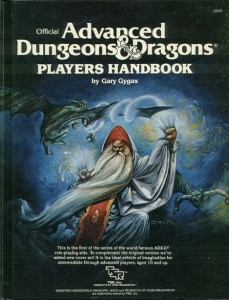
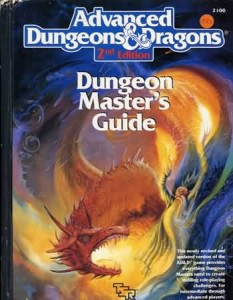
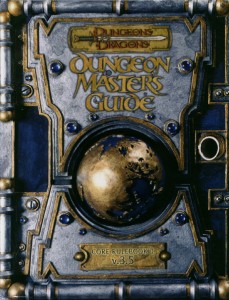
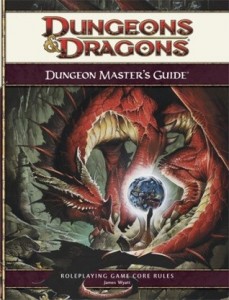
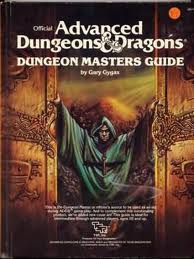



1 thought on “Save vs. Nostalgia: Dungeons & Dragons & Us”